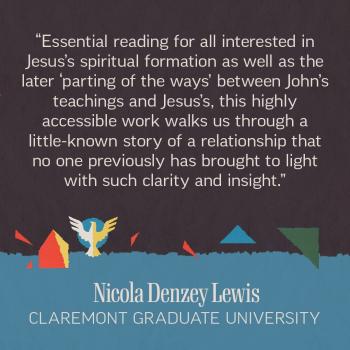I am grateful to Fortress Press for having sent me a gratis review copy of Ronald Charles’ book Paul and the Politics of Diaspora. Charles’ book is a revised version of his doctoral dissertation, and as surprising as it may sound, it is the first full-length monograph which approaches Paul of Tarsus, his life, thought, and activity, from the perspective of diaspora studies. Scholars of the New Testament have been becoming increasingly aware of the need to situate Paul within the context of first-century Judaism, as himself a Jew who never uses the term “Christian” and who sees himself not within the framework of a new religion but of his ancestral one. And insights from postcolonial studies have increasingly been brought to bear on the New Testament. Nevertheless, until now no one had devoted a complete book to the application of insights from the broader field of diaspora studies to Paul the diaspora Jew. And so Charles’ book clearly represents an important contribution, and a volume that deserves to be widely read and discussed, from that perspective alone.
What emerges from this interaction with theorists like Homi Bhabha on the one hand, and traditional Pauline scholars like John Barclay on the others, is fascinating. Indeed, one early result is the identification of the failure of previous scholars to utilize insights from postcolonial studies as motivated by a desire to shield the heroic Paul of Christian faith from certain kinds of questions and observations (pp.106-7). While I would question Charles’ assumption that Paul had a “peculiar conception of the Godhead (which at least nearly violates certain interpretations of the First Commandment)” (p.133), the question he poses in that context is a crucial one: Why are certain things controversial for Paul and other diaspora Jews, while others are not? Why are food and table fellowship issues, but the mixed fibers in the clothing of Gentile converts not an issue in the same way (pp.133-4)? Charles then moves on to consider the issue reflected in Galatians within the framework of the diaspora Jews of Antioch, and also the possibility that Jews from the historic homeland may (rightly or wrongly) have had the working assumption that diaspora Jews are prone to being unacceptably lax with regard to matters of Torah. Diaspora people are always caught between a dominant culture that determines the boundaries of discourse, and their own national or ethnic heritage. This tension is reflected, for instance, when Charles writes, “Paul may have been critical of the Roman imperial order, and his language may reflect a certain rhetoric of liberation, but by borrowing from the linguistic arsenal of the power in command, he remains dependent upon Rome’s rhetorical strategies as he transfers the imperial ideology from one imperial power to another” (p.199).
Chapter 5 of the book applies the diaspora perspective to Paul’s collection among the Gentile churches for the church in Jerusalem. Crucial questions, such as whether Jerusalem was in any sense “home” for Paul, whether literally or symbolically, are asked, in a way that raises explicitly the scholarly question of different ways “home” can be defined and understood, and asks how Paul’s reference to a heavenly Jerusalem fits into the picture. Charles’ own proposal is that “the collection project may symbolically represent the restoration of part of the new temple of God…in dire need of help in Jerusalem – a significant corner of the re-created and resignified temple as it is situated in a symbolic place” (p.245). The book ends not only with some final reflections on what it means to consider Paul in political and socioethnic terms rather than primarily theologically, and how this intersects with matters of academic freedom in a field in which there are many sectarian educational institutions where this kind of approach, asking these sorts of questions, may get one into trouble.
Hopefully it is clear from the above that this is an important volume – obviously relevant to those already interested in postcolonial approaches, but perhaps even more crucial reading for those whose academic interest is in Paul, but who have yet to explore this wider array of scholarly tools and questions. Either way, and regardless of whether one finds specific interpretative suggestions persuasive, Charles’ book will explore questions and raise possibilities which all Pauline scholars will benefit from interacting with.













